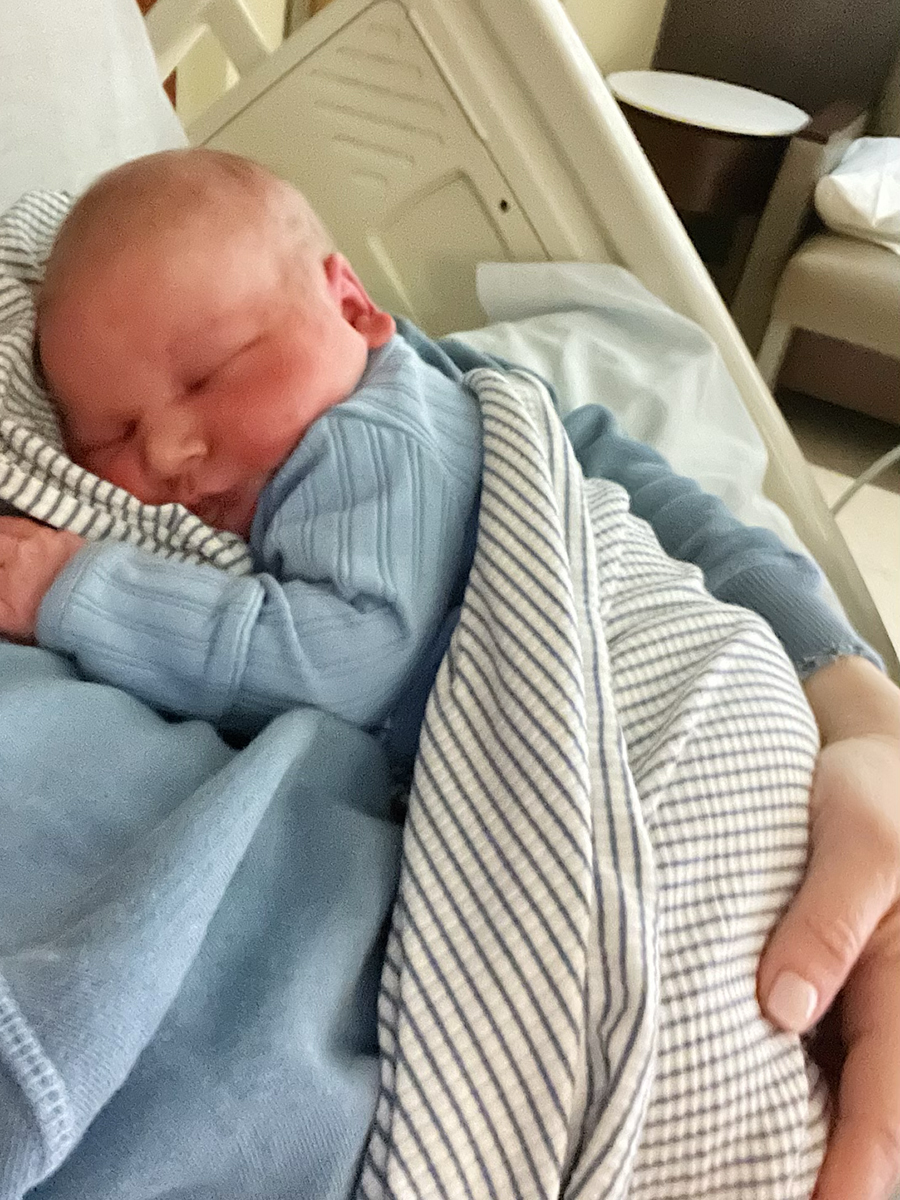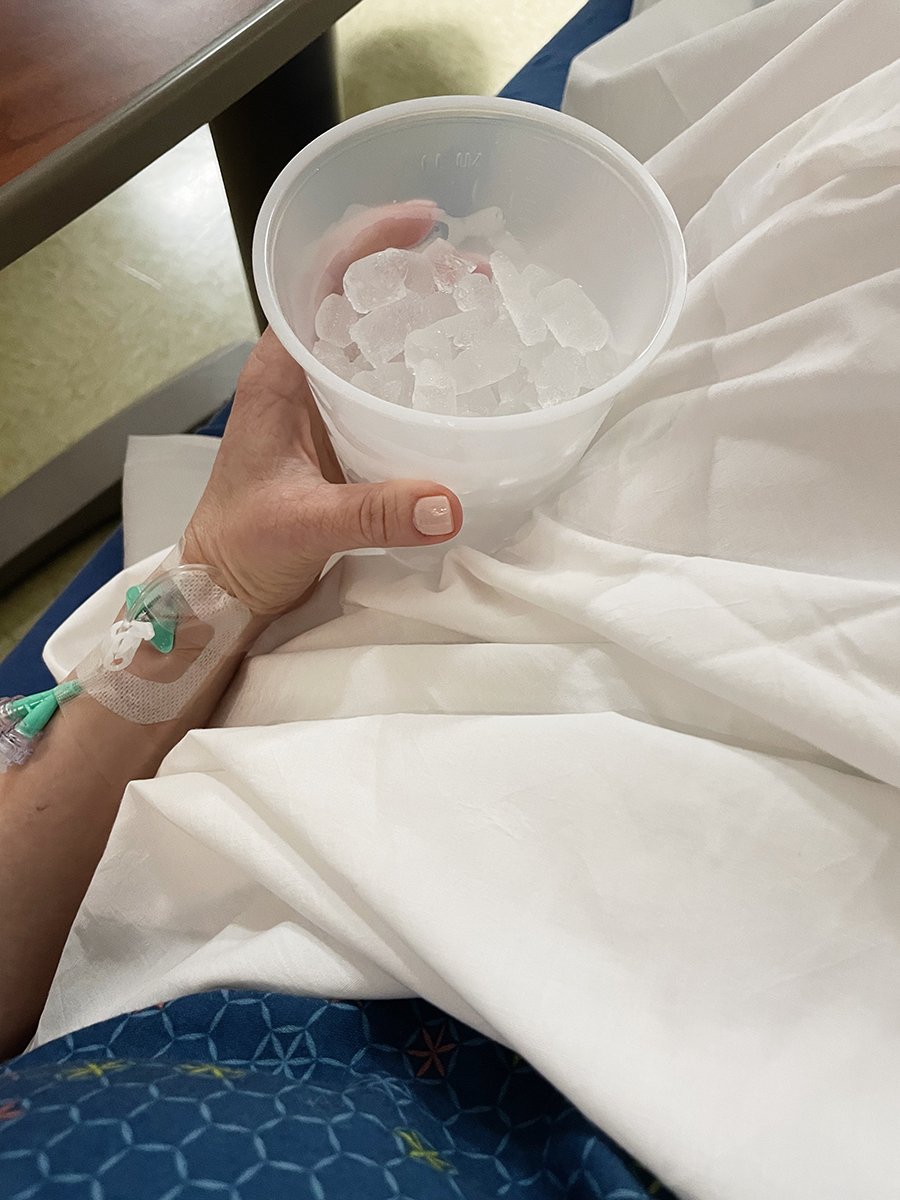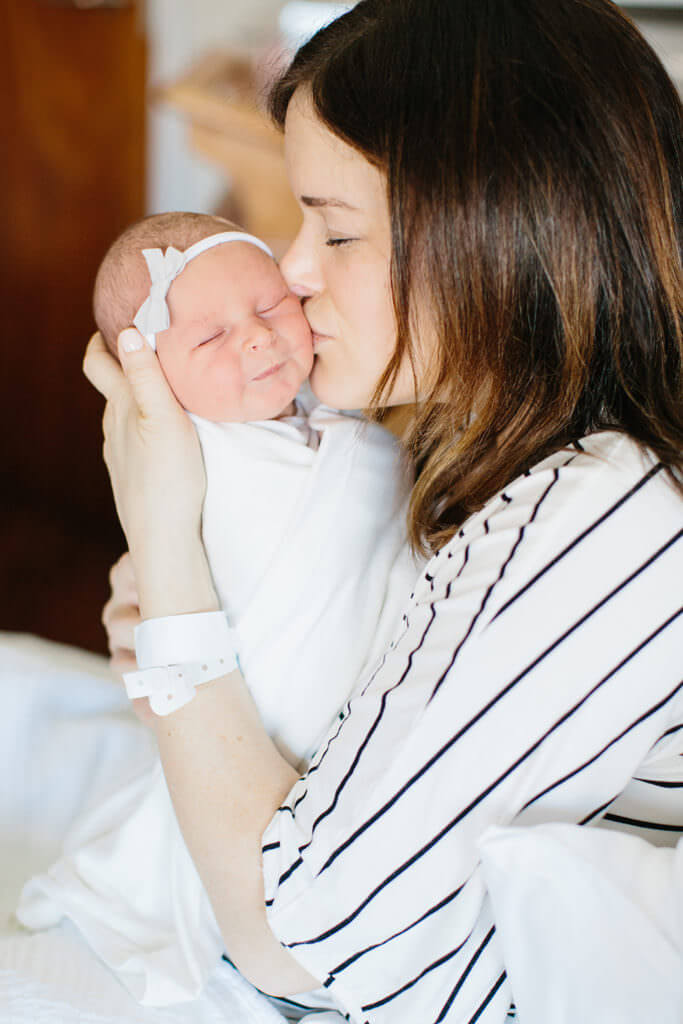Motherhood
What I Wish I Knew Before My Postpartum Hemorrhage


File this under content I never thought I’d share on the internet. After two uncomplicated labor and vaginal delivery experiences, I found myself hemorrhaging after my third baby. I had no idea what was happening and thought I was bleeding out – it was terrifying. But I wasn’t, and I wish I had known more. I wish I had known that I wasn’t dying. The intention of this post is not to scare you – in fact, it’s the opposite. I had no idea what a postpartum hemorrhage would look like, and wish I had known what to look for. At first, I apologized for this experience being TMI when I shared it on instagram. But I quickly realized what a problem that is. It’s why I’m sharing what I went through, because this isn’t “gross” – it is healthcare. Here’s my story.
Before you keep reading, you should know that I made a full recovery very quickly and just days later, am doing great.
What I Wish I Knew Before Experiencing a Postpartum Hemorrhage
Given where women’s healthcare is right now, this felt like information I should share with you. I was thinking a lot about the ways that women (specifically Black women) are often dismissed when something is wrong. About how it’s a privilege to have the means to even be seen – to have access to childcare and the funds to pay for an ER visit. We have babies and are sent on our way, only to be seen six weeks later. Some women are afraid to call. Many are dismissed or gaslit. I received an overwhelming number of questions about what to look for and how I knew I should call. This is not ok. We shouldn’t be afraid to call our doctors, shouldn’t be dismissed, and really should be seen before we’re a month and-a-half postpartum. As you can see, this brought a lot up for me.

Always call your health care provider
It has to be said that I am obviously not a doctor and none of this information should be considered as medical advice. If something seems wrong, always (always!) call your healthcare provider immediately. I just want to share what I experienced with the hope that one of you will be less afraid if it happens to you, and you’ll hopefully be a little more willing to call your doctor if/when something comes up.
Hemorrhaging is a leading cause of maternal mortality in the United States but only 1 to 5 out of every 100 women will have PPH. How is it that a leading cause of maternal deaths is something we aren’t taught more about? Why are we not examined for six weeks after having a baby?
After three relatively seamless previous births I did not expect any surprises after going home. I thought I was in the clear. I had my third and last baby on April 12 (you can read his birth story here). He was a large baby (9.2 lbs.) but I did not experience any complications during labor. There were not any issues after delivery, I pushed just a few times, and did not tear. In fact, my vaginal bleeding wasn’t bad at all. I didn’t tear and wasn’t in pain. It was truly best-case as far as recovery goes. I was able to go home just over 24 hours after Jack was born and within a few days, graduated from my postpartum diaper to a regular (thin) pad. Things were going well.
I knew absolutely nothing about hemorrhaging.
Nothing. I honestly only thought it was an option during or immediately following a smooth labor and vaginal birth. The nurse in triage mentioned that it can happen up to 3 weeks after delivery. No one mentioned that. The nurse at our hospital was very kind and went over some instructions – signs and things to look for. I was told to call if I passed a clot the size of an egg or if I soaked a pad in an hour. And that’s not how this started.
I have since learned that uterine atony (not a doctor – google it) is the most common cause of postpartum hemorrhage. Here are some of the other most common symptoms of postpartum hemorrhage.
Eight days after Jack was born, I passed a blood clot.
I do have to draw the line at not posting photos (need to retain some dignity here) but go ahead and image search “postpartum blood clot” if you want to know what to look for. My clot(s) were much smaller than an egg but there were a lot of them, and I wasn’t told that could happen. They were not round and most were quite misshapen. I did not experience any pain, swelling, or bruising. There weren’t any other signs. At first, I thought it might be a piece of placenta. Not one to take chances when it comes to health, I called my OB’s office immediately. I was fortunate enough not to be dismissed, and I was not afraid of seeming neurotic or uninformed. I am not a medical professional and would worry if I didn’t have answers.
An obstetric hemorrhage wasn’t on my radar, and I certainly did not think it was the cause of the bleeding. I didn’t really think about that happening during labor and certainly thought I was in the clear a week later.
The nurse was very helpful and suggested that I put a “regular” pad in, and call if I soak through within an hour. Less than 20 minutes later, I passed another clot, and the pad was soaked. Again, not the size of an egg which is what I was told to look for. And I had no idea you could lose this much blood and not be “bleeding out”. If you pass a clot or fill a pad within an hour, call your doctor. I switched back to my lady diapers and paged the on-call OB since it was about 7PM at this point and I wanted to talk to a doctor.
Paging the on-call OB
She called back immediately and was very kind. At first, she asked about size, then asked how much blood there was if / when I sat on the toilet. So I did that and more blood clots came out. It wasn’t good, and at this point, I’m in tears convinced I am going to bleed out. She asked me to come into triage. My in-laws came over so we had help with the girls, and I had a ride to the hospital, too. While I wasn’t in pain and didn’t feel dizzy, I was terrified, and didn’t know if I was going to pass out if things got worse, so driving did not feel safe.
The ER and triage
I checked into the ER which brought up a whole set of triggers for me – any and all ER visits over the last two years were related to my daughter’s cancer diagnosis and treatment. It was so triggering since my last emergency was so awful, so that’s where my head was going. I looked at my doctor with tears in my eyes and asked if I was going to bleed out – she assured me I’d be ok and was so kind.
My OB gave me a physical examination and basically grabbed a fistful of clots out of my body. It was quite uncomfortable (I held my breath) but very quick. The nurse started an IV and medicine to stop the clots, and laid in a hospital bed talking to yet another wonderful nurse (I love nurses so much) to pass the time since it was so quiet in there. I asked her about the causes of postpartum hemorrhage and she said it can just happen. Since I didn’t have a cesarean section, I probably moved around a bit more than I otherwise would have. But she said walking around would not be a cause of bleeding – at least not this much bleeding. And I felt fine.
I wasn’t even two weeks postpartum, my hormones were all over the place but I was ok. My red blood cell count was fine – everything looked ok. I did not need any blood products and the excessive bleeding stopped pretty quickly.
Treatment and management of postpartum hemorrhage
The medicine made my uterus contract so I experienced some mild cramping, and the bleeding definitely subsided noticeably. The hardest part was sitting in triage, crying for an hour, postpartum hormones really hitting me as I sat there without my baby in my arms, coming down from thinking I was going to die. My blood pressure and heart rate spiked quite a bit, but I was ok. The doctor prescribed the oral version of the medication to stop the bleeding and the clots seemed to slow down. The next day, I passed one clot (my largest so far). I was anxious that it was going to start up again but it was just the one. I am now about 5 days out and am barely bleeding anymore.
The medicine caused uterine contractions but there weren’t any other side effects. My vital signs were fine and I was able to go home that night. Everything seemed better once I got home. I passed a clot the size of a golf ball the following day and called the doctor. It didn’t happen again, but I did call the doctor to let her know that I passed another clot, and to make sure I didn’t need to be seen. My OB offered for me to come in for an ultrasound on Monday to make sure there were not small pieces of the placenta left over from the placental delivery. The reason for doing this was because I might need a D&C had their been placental tissues or more clots forming. I just wanted to know if I was in the clear or not, and was relieved when everything was ok.
So here’s what I want you to know
I was ok, but was afraid I wasn’t ok. I thought I was experiencing excessive blood loss and that i was going to die. The amount of blood loss looked significant, and I was really scared. But again, I was ok. I’m glad I sought emergency care – that I called my doctor to ask questions. There can be so much shame and fear around maternal health, but if you are unsure, call your doctor.
People tend to share the really bad stories, but stories like this aren’t shared. Our bodies go through so much with the birth of a baby and it’s so important that we advocate for ourselves. I would still call my labor and delivery experience a good one – and my recovery was still technically “easy”. This was a bump in the road and felt scarier than anything. If you experience an increase in bleeding or multiple clots, please call your doctor. If something doesn’t feel right, call your doctor. Know that if you pass a few clots or experience an increase in bleeding, that you should be seen. Odds are that this won’t happen to you, but if it does, I hope my story will provide some comfort, and that you’ll feel confident calling your OB.
Read the real stories from women who have experience preeclampsia, placenta previa, placenta accreta, and other postpartum experiences here.







